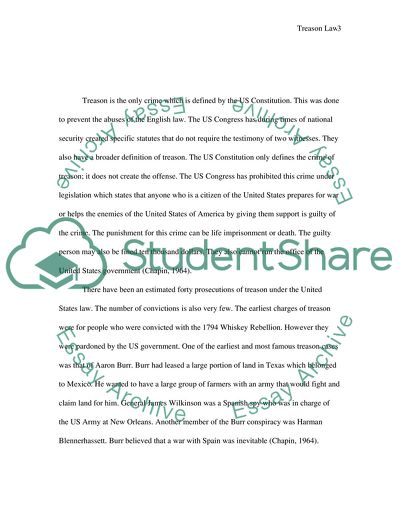Cite this document
(Treason Law Essay Example | Topics and Well Written Essays - 1500 words, n.d.)
Treason Law Essay Example | Topics and Well Written Essays - 1500 words. https://studentshare.org/law/1712239-paper-on-treason-us-criminal-law
Treason Law Essay Example | Topics and Well Written Essays - 1500 words. https://studentshare.org/law/1712239-paper-on-treason-us-criminal-law
(Treason Law Essay Example | Topics and Well Written Essays - 1500 Words)
Treason Law Essay Example | Topics and Well Written Essays - 1500 Words. https://studentshare.org/law/1712239-paper-on-treason-us-criminal-law.
Treason Law Essay Example | Topics and Well Written Essays - 1500 Words. https://studentshare.org/law/1712239-paper-on-treason-us-criminal-law.
“Treason Law Essay Example | Topics and Well Written Essays - 1500 Words”. https://studentshare.org/law/1712239-paper-on-treason-us-criminal-law.


